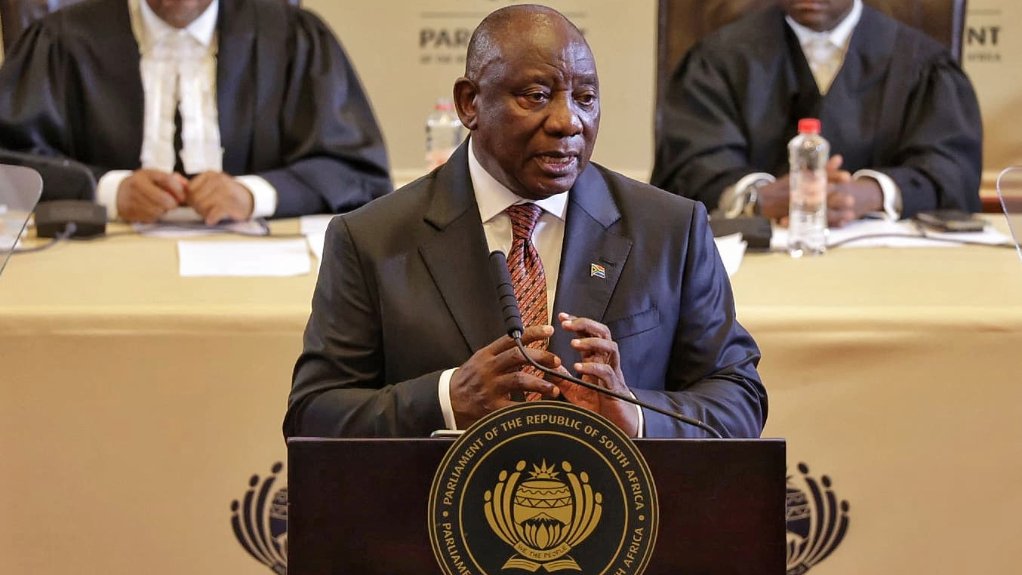President Cyril Ramaphosa insists that South Africans know the pain of forced removals and will, thus, never again allow land to be confiscated – a position that he said was enshrined in the Constitution’s prohibition against the arbitrary deprivation of property.
Replying after two days of debate on his State of the Nation Address (SoNA), which was dominated by President Donald Trump’s executive order halting aid to South Africa on the unproved basis that the country was confiscating land from white farmers, Ramaphosa said South Africans had “toiled long and hard to build a nation united in its diversity”.
“And I repeat, we will not be bullied from our intent to work together,” he added, with reference to his SoNA speech – one made against the backdrop of a threatened withdrawal of American aid, which Trump formalised days later in an order titled ‘Addressing Egregious Actions of the Republic of South Africa’.
Insisting that South African should “not allow others to define us or to divide us”, the President also reflected on the country’s history of force removals under apartheid, as well as the poverty and depravation experienced by black South Africans as a result of the Natives Land Act of 1913.
Again labelling the land question as South Africa’s “original sin”, he defended ongoing efforts to redress the country’s apartheid legacy, which he said was necessary for building “a nation in which all people enjoy equal worth and equal opportunity”.
Land redistribution, however, would be pursued within the framework of the Constitution, which stipulated that “just and equitable compensation be paid in the event of expropriation for a public purpose or in the public interest”.
No reference was made to the newly enacted Expropriation Act’s provision for “nil compensation” in certain circumstances, nor a recent move by the Democratic Alliance (DA), which is one of ten parties participating in the Government of National Unity (GNU) that Ramaphosa leads, to challenge the Act in the High Court.
In his speech during the debate, DA leader John Steenhuisen called for the Expropriation Act to be amended, while also calling on the country to unite in the face of a “new threat” of possible US tariffs and even sanctions.
Ramaphosa, meanwhile, expressed confidence in the ability of the GNU to navigate the “different political and ideological perspectives” of participating parties, stating that “ways of mediating our differences” were being found in the interests of stability and economic growth.
However, he also said that the Constitution made it clear that a sitting President must assent to a Bill passed by Parliament, unless that President had reservations about its constitutionality.
“The Constitution does not permit that the act of assent by the President be subject to negotiation or to the terms of an agreement between parties.”
South Africa, he added, should also strive for a “common message” on the type of society it was seeking to build, “particularly now when we are facing harsh global winds”.
“This is not the time for any of us to rush off to foreign lands to lay complaints about issues that we can solve ourselves in our country,” he added.
This, an indirect reference both to Trump’s offer to resettle Afrikaner “refugees” in the US and plans by AfriForum to send its own separate delegation to the US in response to the order.
“We need South African solutions to South African problems,” he said.
EMAIL THIS ARTICLE SAVE THIS ARTICLE ARTICLE ENQUIRY FEEDBACK
To subscribe email subscriptions@creamermedia.co.za or click here
To advertise email advertising@creamermedia.co.za or click here











